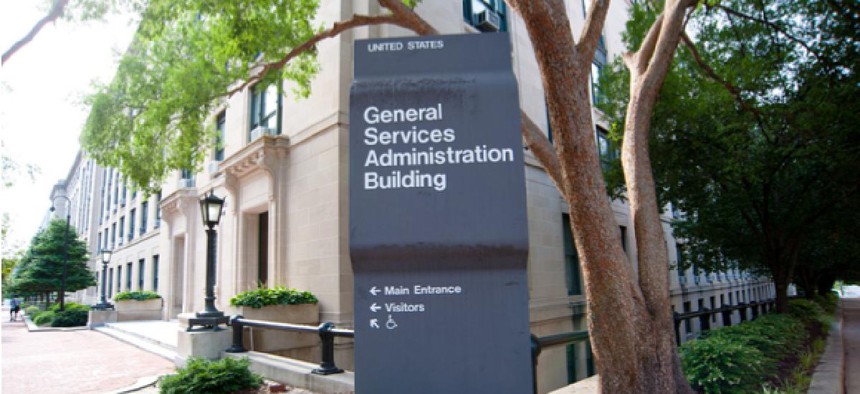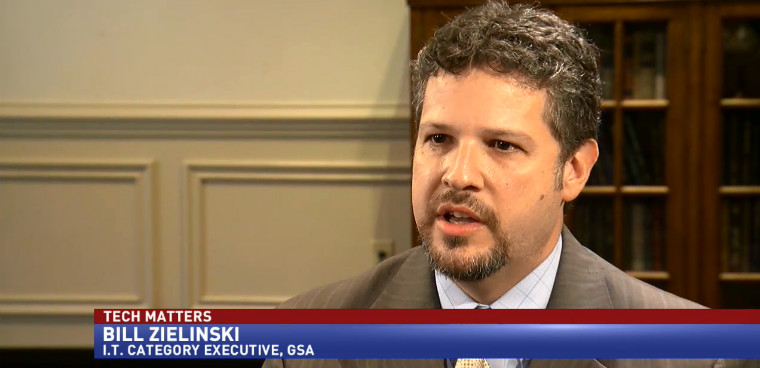Exit Interview: Bill Zielinski

The General Services Administration can’t be shy about getting up close with its federal customers about technology, as the EIS telecom transformation and other efforts move ahead, Zielinski told FCW in an interview.

Bill Zielinski is set to depart the General Services Administration June 5 to take the CIO job in the city of Dallas. His 30-year federal career included some strategic, big-picture posts, such as branch chief for agency oversight at Office of Management and Budget, and the Social Security Administration's CIO.
In 2018, he became Information Technology Category assistant commissioner at GSA in 2018, leading federal IT capital planning and investment control, and helping agencies with overall IT acquisition strategy. He had previously served as deputy assistant commissioner, a role in which he won a Federal 100 award.
His advice for GSA going forward is to "lean in" and take a more active role in how agency customers approach modernization.
"Previously our tendency was to wait for agencies to show up at our doorstep and say 'I'm ready to buy IT now.' The way the market is being driven, we need to engage earlier with agencies and be part of the strategic discussion," Bill Zielinski, assistant commissioner for the Office of Information Technology Category (ITC) in GSA's Federal Acquisition Service (FAS) told FCW in a June 20 exit interview.
"We have a lot of value to add in that strategic discussion," said Zielinski. "If we wait for them to show up, then we're not going to be driving the best outcomes for agencies."
The agency is already doing a good work understanding and addressing that need, he said, but complacency in the fast-moving IT technology is dangerous. In the last several years, the agency has been crafting contracting vehicles, such as its $50 billion, next generation Enterprise Infrastructure Solutions (EIS) telecommunications contract, and Alliant 2 government wide acquisition contract and others, as well as efforts to push advanced solutions and buying methods ahead. The agency's commercial acquisition portal project, which is still in the works, will give agencies a buying platform similar to commercial platforms such as Amazon and EBay.
Zielinski said that in the last few months, the COVOD 19 pandemic has forced agencies to accelerate their modernization plans, reevaluate, or rewrite some of them. It also redirected the GSA's short-term goals.
The pandemic response forced GSA to slow one of its most cutting edge efforts, it's e-commerce platform. The agency said in April it was turning its attention to the pandemic response and pushing the platform to the back burner for a while, as it needed its full attention on helping federal customers with their immediate needs. It had to settle a number of protests over the solicitation, as well.
The pump on the brakes, however, doesn't mean it's stopped, according to Zielinski.
"We're pleased with progress on proof on concept," he said. The agency "is hoping to award in the coming months the proof of concept" contract for the platform, he said. "We're feeling comfortable about where we are" with the platform.
The pandemic has also underlined the importance of supply chain issues. "This pandemic has only highlighted the importance of a healthy supply chain and the need to understand the chain of control. Prior to the pandemic, our collective focus was on the potential risk in the supply chain posed by bad actors through direct attacks or intellectual property theft. The pandemic demonstrated that as demand spikes for particular devices or services, it's clear that we need a clearer picture of what the supply chain of those critical devices and services looks like so we can more readily help deploy capabilities.
Zielinski said the Federal Acquisition Security Council, created in 2018 to examine supply chain risks, is organizing and sharing threat risks. With that work, Zielinski said it was also important for GSA to talk with industry to get ideas, as well as to communicate what's expected from them. With increasing Congressional interest in protecting supply chain, Zielinski said it is also important to understand the potential impact of changing requirements to vendors already in the supply chain, as well as for new entrants, particularly small businesses, into the federal market.
Another pressing issue for FAS has been transitioning federal agencies from old telecommunications contracts to the EIS vehicle.
The process has been slower than anticipated, with the agency pushing an initial 2020 transition deadline to 2023. In spite of that extension, there has been criticism from industry and from Congress that the process remains hopelessly slow.
Zielinski, however, doesn't expect GSA to cut agencies any more time to the 2023 transition deadline. "I don't think it's necessary and I don't expect a large broad amendment" to the deadline to give agencies more time to move their telecommunications over from old contracts.
With the re-prioritization of agencies' IT and telecommunications needs in the wake of the pandemic, GSA is "evaluating on a case-by-case basis and working with agencies to achieve their transition goals."
Some agencies are reevaluating those goals in crafting EIS solicitations, he said.
"They are looking at some different mixes. For those who may have considered other types of options, they're really looking at how they can move to improve digital services, or add more cloud infrastructure to allow them to able to scale up quickly" to serve remote users.
The broad, fast move to remote work for federal agencies, is "changing the thinking on how to deliver" remote access, he said. "We are seeing that to some degree in the work agencies are doing."
Zielinski has a more pragmatic take on the congressional frustration over sluggish agency transitioning, saying the attention shows the contract's importance to the future of federal IT has broader support.
hearings

